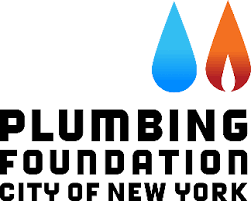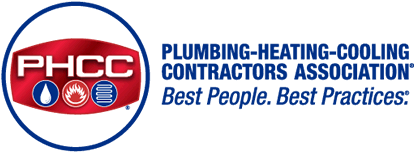
By Industry News
This article was written by guest columnist Terry O’Brien, Executive Vice President for the Association of Contracting Plumbers of the City of New York, and Senior Director for the Plumbing Foundation City of New York.
In light of Climate Week NYC, which occurred September 17-22, I would be remiss if I did not address a topic that has universal impact and is important to so many of us: combating climate change, which the plumbing industry and especially those in the New York City market have been on the forefront of combating for decades. From advocating for more efficient, greener products and lower flow water fixture standards, to stopping use of oil for domestic heating and hot water, we will continue to fight for the industry and for the safety and greening of New York City’s infrastructure and building codes. With that said, I have several concerns about policy decisions as outlined below.
Ambitious But Impractical Gas Ban
On many occasions, governments (city, state, and federal) are reactionary and/or are overly ambitious when dealing with major events and matters of importance, and climate change is one of those topics. As everyone attempts to navigate a better path forward, unfortunately, there are at times laws and regulations, while having the appearance of being a benefit to the greater good, that may actually do very little. Local Law 154 of 2021 is a prime example, which essentially bans the use of all fuels, even green/blue hydrogen and biofuels, in newly constructed buildings under seven stories effective Jan. 1, 2024, and buildings seven stories and above beginning July 1, 2027. Transforming all newly constructed buildings into electric-only has significant economic, logistical, and energy-security concerns, on which the Plumbing Foundation City of New York has voiced its opinion publicly many times and through testimony during hearings at the city and state levels of government. There are other ways to “green” buildings, which may be more realistic, executable within more reasonable timelines, and which have benchmarks that would be obtainable, but these options are pushed to the wayside—and for what? May it be because certain people wish to say they are the first city or state to have a law enacted? These all or nothing “homerun” approaches are flashy but not as impactful. Policies and laws should not be made in bubbles or involving only a certain demographic. Local Law 154 as well as Local Law 97 of 2019 are fraught with problems and limitations against the intentions.
Alternative Yet Unregulated Technologies
Within the climate change and gas banning conversations, there has been a tremendous amount of buzz about use of alternate technologies including heat pumps, solar energy, and thermal energy. All of this interest is great, but the use of some of these technologies is wildly unregulated and not practical for every environment—in particular, thermal energy. There is almost nothing in the NYC Construction Code on how to install thermal technology or who can install these systems, and thus, it presents issues on safety and accountability. To overcome this, thermal energy systems should require permits, and be installed and maintained by NYC licensed professionals who have familiarity with piping systems to ensure these “better” solutions benefit both working New Yorkers and the environment by “greening” more efficiently.
Conclusion
Let me be frank, the plumbing industry, and the stance of the Foundation are transparent on our climate change positions. We want to remain involved and be heard on how we make NYC buildings more efficient and less reliant on fossil fuels. Local Law 154 is going to adversely impact the workers and owners of New York City Plumbing firms. To counter the impact, the city should define the piping and system installation of thermal energy projects as plumbing work for both the good of the plumber and the safety of New Yorkers. Also, the city should reconsider the bans on alternate fuel sources like hydrogen and biofuels caused by Local Law 154. The city should be working to strengthen the work of the licensed master plumber by defining thermal energy piping and allowing hydrogen fuel sources for domestic usage.
